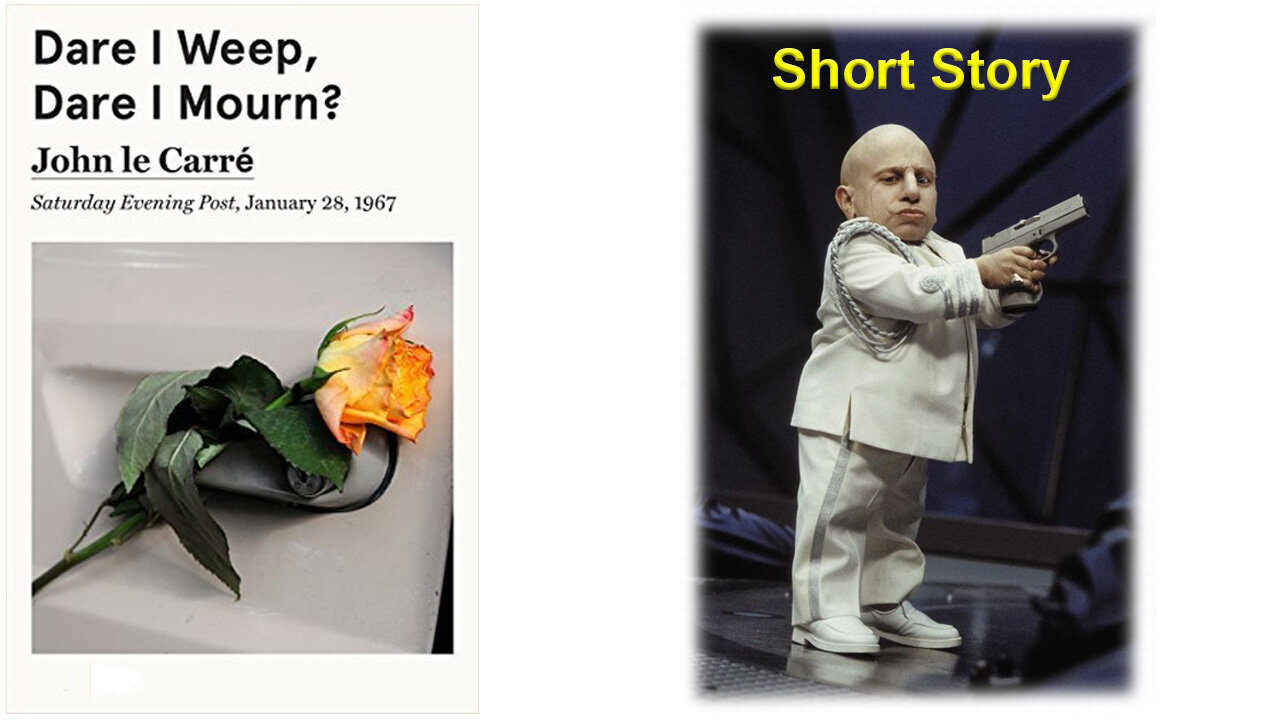Premium Only Content

'Dare I Weep, Dare I Mourn?' (1967) Short Story by John le Carré
'Dare I Weep, Dare I Mourn' is a poignant short story by John le Carré that explores themes of guilt, reconciliation, and the emotional toll of familial estrangement, all set against the backdrop of Cold War tensions.
The story follows the introspective journey of a British businessman, the unnamed protagonist, who travels to East Germany to claim the body of his estranged father. The father, a former communist sympathizer and disillusioned idealist, defected to the East years earlier, leaving his family behind. Their relationship had been fraught with bitterness and disappointment, as the son viewed his father’s political choices as a betrayal of their family.
During his time in East Germany, the protagonist encounters bureaucratic obstacles, oppressive surveillance, and stark reminders of his father’s disillusioned life under a regime he once believed in. These encounters force him to confront his own emotions, including resentment, pity, and a lingering sense of loss. As he learns more about his father’s later years, including his isolation and diminished spirit, the protagonist experiences a complex blend of grief and understanding.
The story's title reflects the protagonist’s internal conflict: the struggle to mourn a man he resented and the difficulty of reconciling his father’s ideals with the harsh reality of his choices. In typical le Carré fashion, the narrative intertwines personal struggles with broader political and moral undertones, offering a nuanced meditation on the complexities of loyalty, ideology, and familial bonds.
-
 LIVE
LIVE
Side Scrollers Podcast
1 hour agoCracker Barrel CANCELS Rebrand + OG YouTuber Has Brain Tumor + More | Side Scrollers IN STUDIO
227 watching -
 LIVE
LIVE
The Mel K Show
45 minutes agoMORNINGS WITH MEL K - Reexamining the US relationship with International Banks, Treaties, and NGOs 8-27-25
573 watching -
 LIVE
LIVE
The Shannon Joy Show
2 hours ago🔥🔥SAVE Baby Kit! Hospital Injects 2 Pound Baby With Hep B Vaccine Without Mom’s Consent, Injures Him Severely Then Calls CPS On The Family!🔥🔥
145 watching -
 LIVE
LIVE
Viss
1 hour ago🔴LIVE - Improve Your Battle Royale Play with Tactics & Strategy! - PUBG
143 watching -
 LIVE
LIVE
Grant Stinchfield
2 hours agoBallot Harvesting Scams EXPOSED: Dead Voters, Fake Signatures, Real Crimes
106 watching -
 1:01:40
1:01:40
VINCE
3 hours agoThe Democrats' Ticking Time Bomb | Episode 112 - 08/27/25
137K93 -
 LIVE
LIVE
JuicyJohns
3 hours ago $0.42 earned🟢#1 REBIRTH PLAYER 10.2+ KD🟢
51 watching -
 LIVE
LIVE
LFA TV
5 hours agoLFA TV ALL DAY STREAM - WEDNESDAY 8/27/25
5,235 watching -
 LIVE
LIVE
GloryJean
2 hours agoAggressive Solo Gameplay on Mouse & Keyboard 🖱️ 6.7 K/D
29 watching -
 LIVE
LIVE
The Pascal Show
1 hour ago $0.11 earnedBREAKING! Mass Shooting At Annunciation Church In Minneapolis Multiple Shot
61 watching